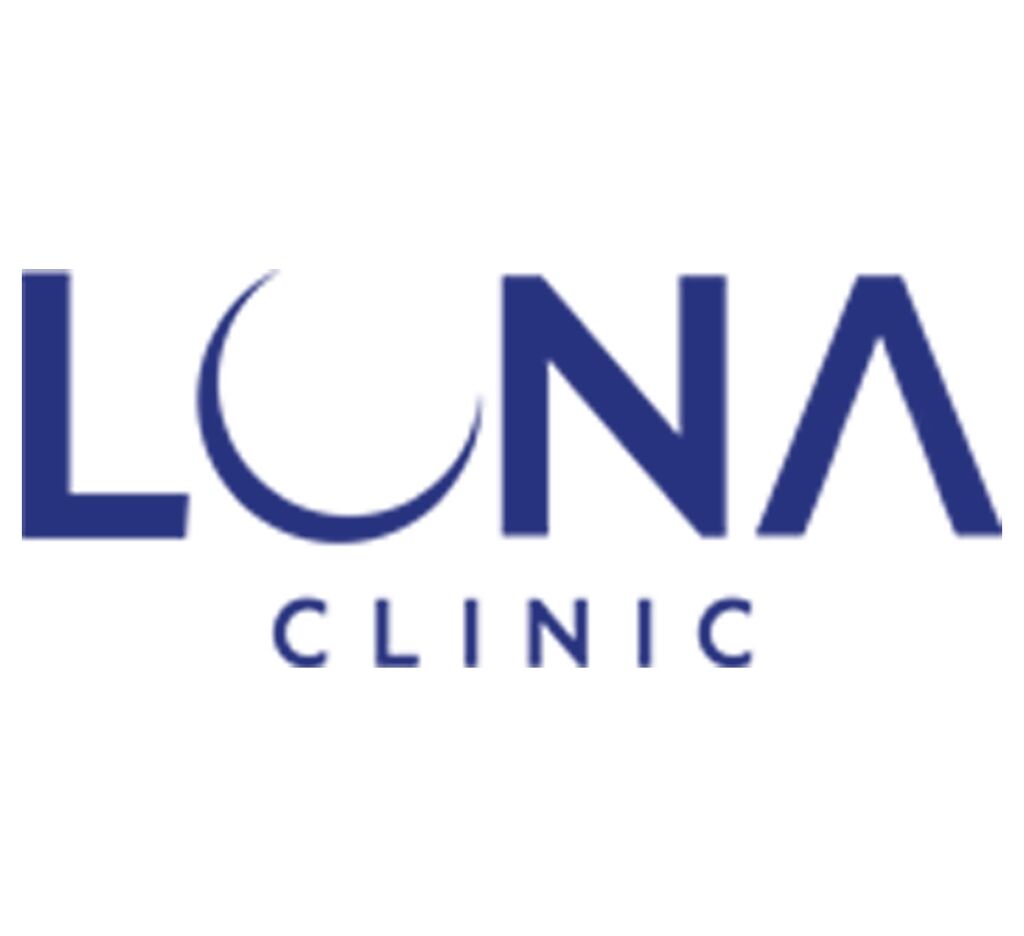When thinking about weight loss surgery, knowing how long recovery might take is really important. The gastric sleeve is often seen as a good choice because it works well and doesn’t have a super long recovery time compared to other surgeries for losing weight. In this detailed guide, we’ll go over all you need to know about getting back on your feet after gastric sleeve surgery. We’ll see how it stacks up against other methods for shedding pounds, so you can make an informed decision about which path might be right for you.
Which Weight Loss Surgery Has the Fastest Recovery Time?
Gastric sleeve and gastric bypass are two of the most common procedures in weight loss surgeries. Each has its recovery timeline and considerations. Generally, the recovery time for gastric sleeve surgery is shorter and less complicated than for gastric bypass.
How long is the recovery time for the gastric sleeve? Patients undergoing gastric sleeve can often expect to start their return to normal activities within 2 to 4 weeks. This is due in part to the procedure’s simplicity, which involves reducing the stomach’s size without altering the digestive tract. The less invasive nature of the gastric sleeve means that the body can recover more quickly.
In contrast, gastric bypass surgery is more complex, involving both the removal of a portion of the stomach and the rerouting of the intestines, which naturally extends the recovery period. Gastric bypass recovery time may require up to 6 weeks or more before patients can resume their normal activities. This extended recovery period is attributed to the surgery’s complexity and the body’s adjustment to a significantly altered digestive system.
Furthermore, the risk of complications such as nutritional deficiencies or the need for adjustments is lower with gastric sleeve, contributing to a smoother recovery process. The gastric sleeve procedure typically requires a shorter hospital stay, often allowing you to go home within 1 to 2 days post-surgery, whereas with gastric bypass, you may need to stay longer. This reflects the differences in the recovery process between gastric sleeve and gastric bypass.
These differences highlight the importance of considering recovery times and potential complications when deciding between gastric sleeve and gastric bypass surgeries.

What is the Process of Recovery Time for Gastric Sleeve?
Gastric sleeve surgery recovery encompasses physical healing and adjusting to a new lifestyle. Initially, the focus is on wound healing, avoiding complications, and gradually reintroducing solid foods. The first few weeks are critical for adapting to smaller food portions and avoiding strenuous activities.
Moreover, during this phase, you receive comprehensive guidance on hydration and nutrition to support healing and weight loss. Following a structured diet plan that includes high-protein, low-carbohydrate foods are essential to aid in recovery and promote satiety with a smaller stomach volume. Emotional support through counseling or support groups can also play a significant role in adjusting to the changes in eating habits and body image, facilitating a smoother transition to a healthier lifestyle post-surgery.
Gastric Sleeve Recovery At Home
Once discharged, your home will become the primary recovery space. Comfort, accessibility to nutritional foods, and support from family or friends play a significant role in a smooth recovery. Pain management and avoiding infection are top priorities during this period.
Additionally, setting up a restful and safe environment is crucial for minimizing risks and promoting healing. This includes having easy access to medications, comfortable sleeping arrangements, and possibly modifying living spaces to avoid the need for excessive movement or lifting. Regular follow-up appointments, either in-person or through telehealth services, ensure that any potential complications are identified and addressed early.
The involvement of family or friends in learning about dietary restrictions and recognizing signs of complications can further enhance the recovery experience, making the transition to post-surgery life less daunting.
How Long Does It Take For The Staple Line To Heal After Gastric Sleeve?
The staple line, critical to the surgery’s success, generally takes about 2 to 3 weeks to heal significantly. However, complete internal healing can take up to six months. Following your surgeon’s advice on diet and activities is crucial during this phase.
To support the healing of the staple line, patients are advised to adhere strictly to a liquid diet initially, gradually transitioning to pureed and then solid foods as recommended by their healthcare provider. Avoiding foods that are difficult to digest or that could stress the newly formed stomach structure is essential.
Regular monitoring through follow-up visits or imaging tests may be conducted to ensure the staple line is healing properly and to detect any signs of leakage or other complications early. Additionally, avoiding strenuous activities or heavy lifting during the initial healing period can prevent undue pressure on the staple line, promoting a smoother and safer recovery.

Can I Go Back To Work 1 Week After Gastric Sleeve?
What is the gastric sleeve recovery time off work? Heading back to work after your gastric sleeve surgery is a big step in your recovery journey, and it’s understandable to wonder when it’ll be safe and comfortable for you to do so. The truth is, the timing can vary based on what you do for a living.
If your job has you mostly sitting at a desk, answering emails, or taking calls, you might be surprised to find yourself ready to dive back into your routine as soon as 1 to 2 weeks after surgery. That said, it’s super important to listen to your body and not rush things. Feeling fatigued? It’s okay to take it easy and allow yourself more time to heal.
On the flip side, if your work is more on the physical side—think construction, landscaping, or any role that requires a good deal of lifting or manual labor—the road back might be a bit longer. Your body will need extra time to heal before you can safely tackle the more strenuous aspects of your job. No matter what, the key is to have an open line of communication with your doctor and follow their advice.
They’ll give you the green light when it’s safe to get back to work, ensuring you don’t jump in too soon and risk your recovery. Remember, every person’s recovery is unique, and there’s no one-size-fits-all timeline. Take it day by day, and you’ll be back in the swing of things before you know it!

How Soon Can I Drive After Gastric Sleeve Surgery?
Driving should be avoided until you can perform emergency stops without pain, typically 1 to 2 weeks after the surgery, provided you are not taking narcotic pain medication. When considering getting back behind the wheel, it’s also essential to think about your overall comfort and concentration levels. Surgery and its aftermath can be quite draining, not just physically but emotionally, too. Even if you’re no longer on heavy pain meds, you might feel slightly more tired or distracted than usual. It’s all part of the healing process.
So, before you decide to drive, try a few short, gentle trips around your neighborhood to gauge how you feel. If you notice any discomfort or find it hard to focus, give yourself more time. Your safety and the safety of others on the road are paramount. Remember, there’s no rush, and taking a few extra days to ensure you’re ready to drive again is always a wise choice.

What Should be My Diet After a Gastric Sleeve?
How to Eat Properly?
Eating properly after gastric sleeve surgery is key to a successful recovery and long-term weight management. Here’s how to navigate your diet through the various stages:
- Liquids Phase (1-2 weeks post-surgery):
- Focus on clear, sugar-free liquids like water, broth, and herbal teas.
- Aim for small sips to stay hydrated without overfilling your stomach.
- Avoid caffeine and carbonated beverages to prevent gas and bloating.
- Pureed Foods Phase (Weeks 2-4 post-surgery):
- Introduce pureed versions of nutrient-rich foods like fruits, vegetables, and lean proteins.
- Ensure foods are smooth and free of lumps to ease digestion.
- Continue to avoid sugar and high-fat foods to support weight loss.
- Soft Foods Phase (Weeks 4-6 post-surgery):
- Gradually add soft foods that are easy to chew and swallow, such as scrambled eggs, soft fish, and cooked vegetables.
- Focus on high-protein foods to aid in healing and muscle maintenance.
- Chew food thoroughly and eat slowly to improve digestion and satisfaction with smaller portions.
- Solid Foods Phase (6 weeks post-surgery and beyond):
- Carefully reintroduce solid foods, starting with lean meats, whole grains, and fresh produce.
- Monitor how different foods affect your digestion and adjust as necessary.
- Continue prioritizing protein, alongside fiber-rich foods, to maintain fullness and support ongoing weight loss.
Throughout all phases, remember to:
- Stay Hydrated: Drink fluids between meals, not during, to prevent stretching your stomach.
- Monitor Protein Intake: Aim for the recommended amount of protein to support healing and lean muscle mass.
- Consider Vitamin Supplementation: Consult with your healthcare provider about necessary vitamins and minerals to prevent deficiencies.
By following these guidelines and listening to your body, you can navigate your post-surgery diet with confidence and set the stage for healthy, long-term eating habits.
How to Exercise After a Gastric Sleeve Operation?
Introducing exercise into your routine after gastric sleeve surgery is a crucial component of your recovery and long-term weight management strategy. Here’s a phased approach to safely increase your activity levels:
- Immediate Post-Op (First 2 Weeks):
- Focus on gentle mobility exercises, such as short walks around your home.
- Avoid any strenuous activity or lifting heavy objects to protect your surgery site.
- Early Recovery Phase (2-4 Weeks Post-Op):
- Gradually increase the length and frequency of your walks.
- Incorporate light stretching exercises to enhance flexibility and circulation.
- Introduction to Moderate Exercise (4-6 Weeks Post-Op):
- With your doctor’s approval, start including low-impact activities such as cycling on a stationary bike or swimming.
- Begin with light resistance exercises using bands or light weights to start rebuilding muscle strength.
- Active Recovery Phase (6 Weeks Post-Op and Beyond):
- Introduce more varied and slightly more intense workouts, including brisk walking, jogging, or group exercise classes designed for beginners.
- Consider strength training exercises to increase muscle mass and improve metabolism, always focusing on proper form to avoid injury.

Throughout your exercise journey, keep these key points in mind:
- Listen to Your Body: If you experience any pain or discomfort, take a step back and adjust your activity level.
- Stay Hydrated: Drink plenty of water before and after exercising to stay hydrated, especially as your body adjusts to your new exercise regimen and reduced stomach capacity.
- Set Realistic Goals: Start with small, achievable goals and gradually increase the intensity and duration of your workouts as you get stronger.
- Seek Professional Guidance: Consider working with a physical therapist or a certified personal trainer experienced with you to tailor an exercise program to your specific needs.
By carefully integrating exercise into your recovery process, you can support your body’s healing, boost your energy levels, and accelerate your progress toward your long-term weight loss and health goals.
When Can I Return to Work After Gastric Sleeve Surgery?
Common Challenges After a Gastric Sleeve
Returning to work after gastric sleeve surgery is a significant milestone in your recovery journey. The exact timing can vary greatly from one person to another, depending on the nature of your job, your overall health, and how quickly you’re able to recover from the surgery. For many, the return can occur as early as 1 to 2 weeks post-surgery for non-physically demanding jobs, but it may be longer if your role requires physical labor.
Beyond the basic timeline, there are several common challenges you may face as you adjust to life after gastric sleeve surgery:
- Dietary Adjustments: Learning to eat small, nutrient-dense meals can be a big change. You may also experience food intolerances that you didn’t have before, which can require further dietary adjustments.
- Physical Side Effects: Aside from nausea, other physical side effects can include fatigue, body aches, and sensitivity at the surgery site. These can impact your ability to perform your job, especially if it involves physical labor.
- Emotional and Mental Health: Rapid weight loss can lead to significant emotional changes. Some people experience a boost in self-esteem and mood, while others may struggle with their new body image or fear of weight regain.
- Social Dynamics: Your relationships with colleagues may change, especially if your workplace involves social eating or drinking. You may need to navigate questions or comments about your weight loss or dietary restrictions.
- Energy Levels: It can take time for your body to adjust to its new normal, which may result in fluctuating energy levels. This can affect your productivity and ability to work long hours, especially in the early stages of recovery.
To manage these challenges, consider the following strategies:
- Plan Meals: Prepare your meals in advance to ensure you stick to your dietary requirements. Consider speaking to a nutritionist for meal ideas that fit within your new lifestyle but are also practical for your work environment.
- Communicate with Your Employer: If possible, have an open conversation with your employer about your needs during this transition period. Flexibility in your schedule or workload may be necessary as you adjust.
- Seek Support: Utilize support groups, counseling, and your medical team as resources not just for physical recovery, but for emotional support as well. Connecting with others who have undergone similar experiences can be incredibly helpful.
- Monitor Your Health: Keep a close eye on how you’re feeling physically and mentally. Regular check-ins with your healthcare provider can help address any complications or concerns early on.
- Take Breaks: Don’t hesitate to take short breaks during the day to rest or eat. Listening to your body and not overexerting yourself is key to a successful recovery.
Navigating the return to work after gastric sleeve surgery requires patience, planning, and support. By being mindful of the common challenges and employing strategies to address them, you can make the transition smoother and more manageable.

Pregnancy After Weight Loss Surgery
Pregnancy should be carefully planned after gastric sleeve surgery, typically waiting 12 to 18 months to ensure weight stabilizes. Consultation with a healthcare provider is essential to ensure a healthy pregnancy and to monitor nutritional needs.
During this waiting period, reaching a stable, healthy weight is important to reduce the risk of complications for both mother and baby. Nutritional deficiencies, which can occur after weight loss surgery, need to be addressed before conception to support the development of the fetus. A healthcare provider can help manage any ongoing effects of the surgery on your body and adjust your dietary plan to meet the increased nutritional demands of pregnancy.
Regular prenatal care becomes even more crucial to monitor your and your baby’s health, especially in monitoring weight gain and nutritional intake during pregnancy. Additionally, mental and emotional support can be beneficial, as navigating pregnancy after significant weight loss can bring unique challenges and concerns.

Ensuring Long-Term Weight Loss with Gastric Sleeve
- Long-term success requires adherence to dietary guidelines, regular exercise, and ongoing support. Monitoring for potential nutritional deficiencies and managing them with supplements as recommended by your healthcare provider is also key.
- Incorporating lifestyle changes into your daily routine, such as choosing nutrient-dense foods and staying active, plays a pivotal role in maintaining weight loss and promoting overall health. Regular follow-up appointments with your healthcare team allow for adjustments to your diet and exercise plan to suit your evolving needs and to keep you on track towards your goals.
- Additionally, joining support groups or finding a weight loss buddy can provide motivation, share experiences, and overcome challenges together, making the journey more manageable and sustainable.
- Understanding the recovery time for gastric sleeve surgery is crucial for anyone considering this life-changing procedure. With proper care, adherence to dietary and exercise recommendations, and support from healthcare providers and loved ones, individuals can navigate the recovery process successfully and embrace a healthier lifestyle. If you’re contemplating gastric sleeve surgery, remember that the journey to weight loss is not just about the surgery but about a commitment to a new way of living.
When comparing the recovery time between gastric sleeve and gastric bypass surgeries, it’s clear that patients generally experience a quicker return to their daily routines with the gastric sleeve. Typically, the healing time for gastric sleeve surgery spans from 2 to 4 weeks, allowing patients to resume most of their normal activities within this timeframe. This contrasts with the more extended recovery period required for gastric bypass surgery, due to its more invasive nature.
Looking at gastric sleeve 10 years later, patients often maintain significant weight loss and improvements in health, although it’s essential to adhere to dietary and lifestyle changes to sustain these benefits. Post-operation, there are specific things you can’t do after gastric sleeve surgery, such as consuming large meals or drinking liquids with meals, to avoid complications and ensure long-term success. The recovery time for stomach sleeve or bariatric sleeve surgery highlights the importance of a well-planned recovery process, emphasizing gradual healing and adjustment to new eating habits, to facilitate a smooth transition to a healthier lifestyle.
Navigating the weight loss surgery journey, particularly when considering the gastric sleeve, requires understanding and preparation. The recovery time, while generally shorter and less complicated than that of gastric bypass, underscores the importance of choosing the right procedure for your needs and lifestyle. As you embark on this transformative path, remember that the success of your surgery extends beyond the initial recovery period—it’s about making lasting changes to support your new, healthier life.
At Luna Clinic, we’re dedicated to guiding you through every step of this journey. Our team of experts is here to provide comprehensive care, from initial consultation to post-operative support, ensuring your recovery is as smooth and effective as possible. We understand the importance of informed decision-making and are committed to offering personalized solutions that align with your health goals.
If you’re considering gastric sleeve surgery or wish to learn more about our services, we encourage you to contact us. Discover how Luna Clinic can support your journey toward a healthier, more confident you. Contact us today to explore your options and take the first step toward transformative change.


